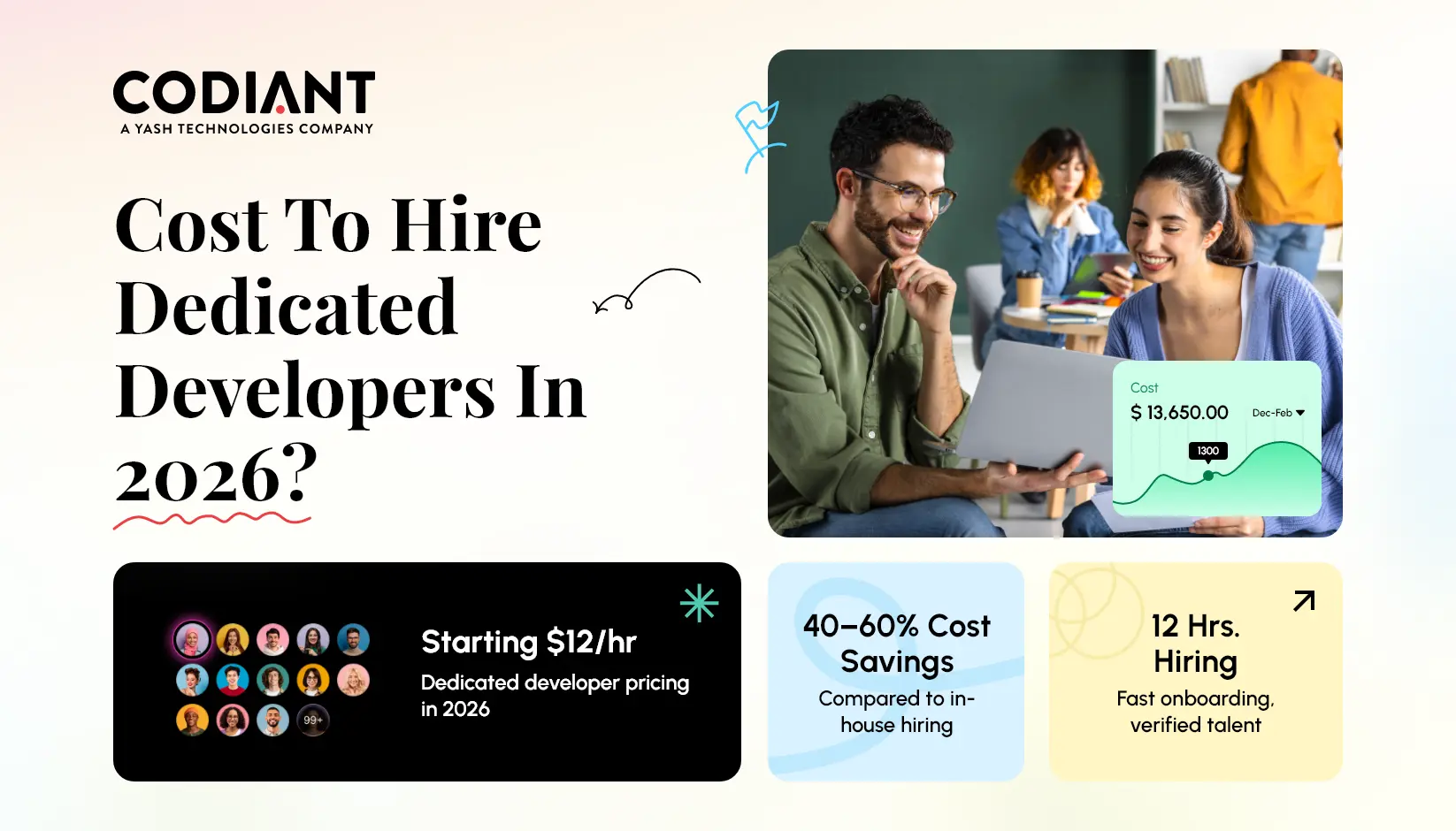10 Steps to Design and Develop a Healthcare App
As tech trends are gaining new heights with dynamic market demands, doctors and patients are relentlessly pinning their hopes on new tech-oriented features that could bridge their gap to connect with each other. In this chase for seamless connectivity, telemedicine apps are capturing the biggest market pie with an unprecedented revolution.
To be distinct from the competition, introducing a unique idea or developing a healthcare app is not an easy process, so let’s understand in detail how to lay down the stepping stone.
1. Identify the Problem You Want Your App To Solve
There are numerous competitive healthcare apps existing in the market, so it is crucial to analyze the market requirements and your niche expertise and then develop a healthcare app. Based on the analysis, gear up to propose the right solution to the customers through healthcare app development.
If in case, you fail to culminate the right issues, then try to answer the following questions-
- What problem does your app address and how the user’s life will become easier?
- Does your healthcare app fill the existing market gap?
- Will your app idea beat the competition?
The mobile app industry is heavily crowded, so it is crucial to pick the right business idea to attract users. If your app fails to deliver the proper solution to the user’s problem efficiently, then you are also going to be part of the cluster, rather than being one of the market leaders.
Bonus: Some of the pressing issues of the healthcare apps that you could solve through advanced technologies like artificial intelligence, virtual reality, symptom trackers, and training programs are:
- Mobile healthcare apps have serious ongoing problems with “Privacy”. Confusing privacy disclosure makes it tricky for users to know the implications.
- “Misdiagnosis” is another concern that is affecting patient-doctor relationship trust. Healthcare apps powered by AI and symptom trackers can help Doctors diagnose more accurately.
- “Limited access to advanced clinical training” is also a matter of distress that directly impacts the seamless delivery of healthcare services. This issue can be solved through online training programs.
2. Analyze Your Target Audience
“One Size Does Not Fit All”. Market Segmentation is the key. Since you are delivering the mobile app development to the users, so it is recommended to design your products and services by studying your prospective users in the early stage only. It will help you to understand the users, the demographics, and their heterogeneous needs to define your specific target audience. A useful construct is to look at:
- What is the location of your prospective users?
- What preferences do they have with healthcare app solutions?
- What demographic segment do they belong to?
- What type of devices does your target market possess?
- Does your target audience suffer from some chronic diseases?
- What do they demand or expect from the healthcare app solutions?
- What are their priorities, values, and attitudes when they go to consult a care provider?
This can also be carried out well through the segmentation of healthcare consumers on the determinants of psychological, socio-demographic, and socio-economic variables. The survey will help you to align supply and demand and facilitate the selection of target groups through the right solution.
The other benefits of healthcare market segmentation are better engagement with patients and a clear approach to delivering tailored healthcare services with strategized healthcare marketing.

3. Define the Type of Healthcare App Solution You’d Like to Build
“List out, define, and scrutinize”- should be your go-to strategy! Clearly, if you are looking for the types of healthcare app solutions that seem more appropriate for your business idea to introduce in the market, then you will witness a plethora of app ideas while considering three different users i.e., Patients, Medical Practitioners, and the Administrator. To make your search easier, here we dropped down the list of such healthcare app ideas.
Healthcare App Ideas for Medical Practitioners and Administrators
- Telemedicine/TeleHealth App
- Remote Patient Monitoring App (RPM)
- Doctor Appointment & Clinical Assistance Apps
- Medication Prescription or Dosage App
- Medical Record App
- Professional Networking Apps
- Medical Training Apps
Healthcare App Ideas for Patients
- Health Tracking App
- Medication Tracking App
- Ambulance Booking App
- Mental Health App
- Medical Education App
- Diet and Fitness Apps
- Women’s Health Apps
4. Choose Your App Features & Advanced Technologies
Once you decide on the type of healthcare app solution, you can proceed to the development phase. But, before development, you need to jot down the functionalities and relevant advanced technologies you like to introduce in your mobile application.
Key Features of Healthcare App Development
Apart from basic features, here are the popular key features that every telemedicine mobile app requires.
- Schedule Appointments- Based on the doctor’s slot availability, users should be able to book an online appointment and visit with the specialist from your healthcare app.
- Real-Time Video/Audio Chat- The real-time video and audio calling feature in the healthcare app design helps patients connect directly with the doctor on an appointed time schedule to get online consultations, discuss health issues, get treatment, and receive e-prescriptions.
- Chat and Messaging- This feature enables communication through chat & messages when call interaction is not required.
- Secure Payment Integration- Providing multiple modes of secure online payment is a good option for global patients to reach out to a specialist for consultation.
- Geolocation- This feature enables patients to find doctors, clinics, pharmacies, and medical facilities based on the location search.
- Progress Tracking- This means storing the current and previous data to do a comparative study and track the progress. This feature is useful in monitoring heart rate, calories burned, blood pressure, sugar level, etc.
- Third-Party Integration- The healthcare application enables to connection of HealthKit, Samsung Health, and Google Fit with measuring devices, such as smart scales, smartwatches, etc.
- Analytics, Reporting, & Charting- It is intelligent to present patients’ or doctors’ data through visual reports and charts.
- Cross-Platform Access- Develop a healthcare app that works properly on multiple platforms and devices i.e., smartphones, tablets, and laptops.
- Offline Mode- In offline mode users can access frequently visited pages, such as user profile, chat, medical history, prescription, etc.
- Push Notifications- The App sends notifications to the users to remind them or educate them about something unique such as a new feature or functionality added, A new doctor joining the panel, and many more.
- Real-Time Update- Providing updates in applications is important for healthcare applications that regularly refresh the data to ensure better analytics.
- Security and Privacy- Telemedicine mobile apps take users’ sensitive and confidential data very seriously, therefore such apps should have quality privacy and security features.
Advanced Technologies Included In Healthcare App Development
The advanced technologies promote innovation by maintaining the trends and status quo in today’s healthcare app development. Such advanced features significantly upgrade the user experience. Let’s find out what such advanced technologies are.
- AI & ML- AI is a smart technology that learns from the previous activities the software performs. Hence, AI-powered apps can easily track & identify health trends, ease diagnoses, and analyze a pool of data at a time. AI & ML work side-by-side; after data analysis, the ML technology can help medical personnel improve their ability to diagnose, by suggesting the right prescription, preventive measures, along with behavioral monitoring.
- Blockchain- Blockchain-based healthcare apps provide a secure and tamper-proof environment to store and access data. Likewise, healthcare apps possess a lot of personal details about patients and doctors as well, which requires good quality security to prevent any type of fraud or data theft. Blockchain can perfectly match the increasing need for the security of medical sensitive data.
- IoT- Tracking physical activities using wearable devices has become a popular method to help people better monitor their health status both at an activity/fitness level. The IoT-enabled devices are wearable health devices, smartwatches, and fitness trackers. These devices track patient’s health data and send it to the doctor, which helps the doctor to monitor the progress and suggest prescriptions without their physical presence.
- AR and VR- AR and VR technology work simultaneously to yield the best results and are very effective technologies in the healthcare industry. Both technologies can be used to carry out physical therapy sessions remotely, whereas doctors can also educate and train their students safely to perform surgery. Moreover, VR is also useful for biomedical education and medical training and also assists patients in understanding their diseases through a simulated environment.
5. Choose a Right Tech-Stack
Technologies are your app’s engine. Thus, choose the tech stack very carefully. As it can influence the features you are looking to add to your healthcare app. You can develop a native or an Android or iOS-specific application.
This decision depends on your target audience’s device usage. So, keep in mind your users while developing the healthcare app and support different screen sizes as well, such as smartphones, tablets, and laptops/computers. These devices ensure quick and instant access to the app.
For Healthcare App Development, the following technologies are recommended:
- Programming Languages- Kotlin, Swift, PHP, Node.JS.
- IDE- Xcode, Android Studio.
- Application Framework- Ruby on Rails
- JavaScript Framework- React Native
- Automation Framework- RSpec, Capybara
- Cloud Storage- Amazon S3
- Database- PostgreSQL, Mongo DB, Redis, MySQL
- Utilities- Google Analytics, Visual Website Optimizer, Mixpanel
- Payment Gateway- Stripe, Paypal, Braintree
- Deployment Platforms- Cloud, iOS Native, SaaS, Android Native
6. Research Privacy & Compliance Issues
The patient pool is continuously rising. So, is the sensitive medical data? Therefore, it is extremely crucial to address this alarming issue of privacy leakage in your app. While developing a healthcare app, make sure you comply with data privacy and medical regulations.
In order to ensure the patient’s data always moves to and fro in the app in a secure format and through a secure connection path, comply with the country/regional industry’s privacy regulations.
Like if you are developing an app in the US, then the personal health information should be protected by HIPAA. In the European Union, the app needs to be compliant with General Data Protection Regulations (GDPR) and In Canada, you must adhere to regulations of PIPEDA (the Personal Information Protection and Electronic Documents Act) Likewise, The UAE Ministry of Health (MoHAP) for UAE.
Related Reading: What is HIPPA Compliance and Why is it Important for Healthcare Organizations?
7. Design UI/UX of Healthcare App Considering User’s Requirements
Introducing a striking UI (User Interface) and effortless UX (User Experience) design is important for telemedicine apps success. A great UI/UX keeps users involved, attracts more users, and promotes trust in your product and services.
Such apps are frequently used by doctors and patients and they tend to invest a good amount of time along with providing sensitive and personal details. So, make sure to create a simple and easy-to-use app that does not take a cognitive toll on the user’s mind.
Consequently, avoid implementing complex designs that need high mental effort, instead, promote a simple app. As, in vulnerable states, patients might struggle to use the app or in the worst case could stop the app usage and adopt a traditional mode of treatment.
To avoid such scenarios, it is suggested to implement a smart and user-friendly interface that drives patients to exercise all the services the healthcare app is offering in a hassle-free way.
8. Hire the Right Healthcare App Development Company
After analyzing all the aspects of healthcare app development, now it’s time to hire an experienced healthcare app development company with an expansive portfolio. Not every development team can accurately take your business idea on-floor. So, look for the right technical skills, expertise, and most importantly experience in this domain.
To develop a detailed and quality product, a team of professionals who have already developed a series of successful healthcare mobile apps including telemedicine/telehealth, online appointment booking, doctor on-demand, remote patient monitoring apps, etc. Aim to hire the best healthcare app development companies, because they are experts in their craft and can help you formulate strategies in a guided manner and can also suggest the latest trends and technologies whose demands are going to escalate in the near future.
9. Perform Testing and Quality Assurance
Before deploying the healthcare app in the market, it is essential to test the developed product and ensure the quality of the finished app. The Quality Assurance (QA) are specialists, who are responsible for maintaining the app quality while keeping the end-user in mind.
A QA check also makes sure that the app is safe for data and meets the rules and regulations for healthcare. So, QA can use many different types of testing, such as A/B Testing, black box testing, alpha testing, beta testing, unit testing, acceptance testing, and many more, to make sure the quality stays high. Quality Assurance is crucial for an app because it identifies all the issues that must be resolved before app release.
10. Product Release and Continuous Support
After testing and debugging the healthcare app, now it’s time to deploy it on the relevant platforms i.e., App Store, Play Store, or on both. Deploying an app is also a critical step because these platforms have norms that an app must follow. However, an expert healthcare app development company is aware of all that and can carry out product releases smoothly.
Once the app is deployed on respective platforms, you are not yet done with the development companies. Your app still requires continuous support to maintain its quality and sort out any real-time technical issue, if arises. This phase includes the introduction of application updates, which shows that your app provides new content periodically.





